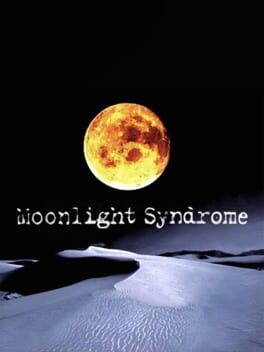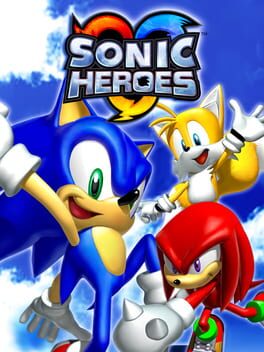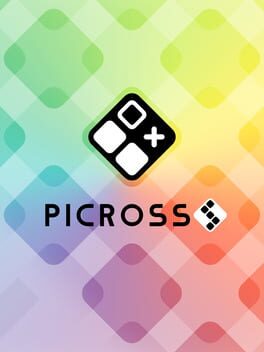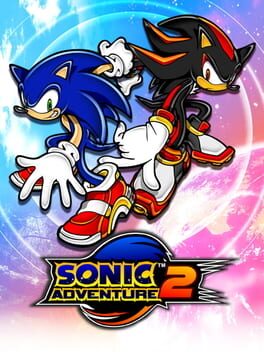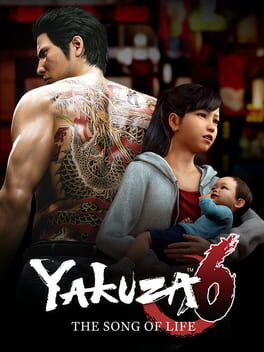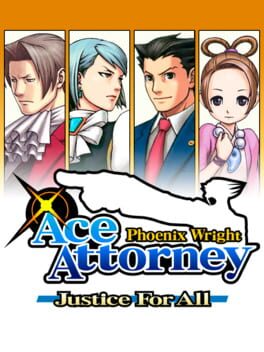gsifdgs
2257 Reviews liked by gsifdgs
Seeking Ātman in Nirvana
Digital Devil Saga 2 continues directly were the anti-climatic ending of Digital Devil Saga left off. Unlike your Shin Megami Tenseis or Personas, Digital Devil Saga is deeply connected to it's sequel which I might add it is necessary to enjoy the story at it's fullest since this comprises the events from the past, present and the eventual future. It explains what Digital Devil Saga couldn't with it's first game, and greatly expands on the core concepts of the original to create a worthy sequel to the original.
After finishing both game I now understand why they are considered underrated titles, overlooked by people and even the fandom. Digital Devil Saga story is somewhat complex if you don't understand the core concepts of Hinduism, mainly why things happen in the first place. Hunduism itself is not directly stated at any point of both games directly, rather it is present in the concepts set religion left to study and analyze. Digital Devil Saga translates those elements to give the story and gameplay a meaningful purpose. Samsara, Ātman, Nirvana and lots of other concept can flew over people's head if not careful. Did about an hour of research of the main concepts themselves, what they are how are applied here. They get directly translated, thus it is hard to sell someone on Hinduism regardless of religion or personal beliefs just to play a MegaTen game.
Now, with Digital Devil Saga 2 itself. Before entering this game my thoughs went to thinking the duology was rushed and they were supossed to be one game. It doesn't seem the case after finishing it, the tone shift is clear from the start and something this big couldn't have been achieved in one single game. Digital Devil Saga 2 gets rid of the apocalyptic and destroyed setting of the Junkyard and transport us to an urban setting, more grounded and resembling our reality. Airports, research installations, power plants, you get the idea. This is explained throughout the story, as a setting completely different from the first game. As I said before, it explains everything the prequel couldn't.
The story while not as subtle as the first game still retains that sense of mystery and symbolism that featured the prequel. Ambitious and definitely punches above it's weight most of the time as the game only shows the "key" moments to interpret the story as a whole. It is a lot to handle at once, it is possible that details get fuzzy, mixed or outright forgotten. Mainly due to the pacing which not only Digital Devil Saga 2 had but the first game as well. These are the Dungeons were it's 100% gameplay focused, sometimes story bits are introduced as a reminded of what we are currently doing. Personally, I do think they were long and bland for the most part without much of substance. Strange, knowing Nocturne and Digital Devil Saga had very fun dungeons to explore. It got tiring after a while.
On the other hand, the gameplay were the RPGs aspect take hand are expanded upon the first game. From the rings, to the new Mantra Grid and various other gadgets that will help on the adventure. It is possible to carry your data from Digital Devil Saga too, for difficulty sake I didn't do that as I thought it would break the game as it is. Luckly it isn't hard, rather I would use the world "Fair" to describe it. Now battles are more engaging as it is constantly rewarding you based on your luck. Entering....The Jack Frost Show, Omoikane's Treasure and Berserk Mode. These are made up names, but the message is: These are methods that reward your knowledge and your luck on battle. As usual it retains everything that made the original so good, leaning into heavy player expression thanks to the rings and a revamped Mantra Grid.
Ultimately Digital Devil Saga message is about moving forward, enlightment and dealing with the past from an empathic and comprehensive point of view. The point of surviving, survival of the fittest made clear in the first game gets ditched to level ourself and resolve the problem of humanity triggered by greed. It is the classic JRPG tale after all, but there are some many twists to the already stablished formula it stands for something newer while keeping compelling part of it intact. It is one of the most story involved MegaTen games too, putting aside the gameplay aspects of it. Can't say is one of my favourites, but it was worth looking for something new in the franchise.
Digital Devil Saga 2 continues directly were the anti-climatic ending of Digital Devil Saga left off. Unlike your Shin Megami Tenseis or Personas, Digital Devil Saga is deeply connected to it's sequel which I might add it is necessary to enjoy the story at it's fullest since this comprises the events from the past, present and the eventual future. It explains what Digital Devil Saga couldn't with it's first game, and greatly expands on the core concepts of the original to create a worthy sequel to the original.
After finishing both game I now understand why they are considered underrated titles, overlooked by people and even the fandom. Digital Devil Saga story is somewhat complex if you don't understand the core concepts of Hinduism, mainly why things happen in the first place. Hunduism itself is not directly stated at any point of both games directly, rather it is present in the concepts set religion left to study and analyze. Digital Devil Saga translates those elements to give the story and gameplay a meaningful purpose. Samsara, Ātman, Nirvana and lots of other concept can flew over people's head if not careful. Did about an hour of research of the main concepts themselves, what they are how are applied here. They get directly translated, thus it is hard to sell someone on Hinduism regardless of religion or personal beliefs just to play a MegaTen game.
Now, with Digital Devil Saga 2 itself. Before entering this game my thoughs went to thinking the duology was rushed and they were supossed to be one game. It doesn't seem the case after finishing it, the tone shift is clear from the start and something this big couldn't have been achieved in one single game. Digital Devil Saga 2 gets rid of the apocalyptic and destroyed setting of the Junkyard and transport us to an urban setting, more grounded and resembling our reality. Airports, research installations, power plants, you get the idea. This is explained throughout the story, as a setting completely different from the first game. As I said before, it explains everything the prequel couldn't.
The story while not as subtle as the first game still retains that sense of mystery and symbolism that featured the prequel. Ambitious and definitely punches above it's weight most of the time as the game only shows the "key" moments to interpret the story as a whole. It is a lot to handle at once, it is possible that details get fuzzy, mixed or outright forgotten. Mainly due to the pacing which not only Digital Devil Saga 2 had but the first game as well. These are the Dungeons were it's 100% gameplay focused, sometimes story bits are introduced as a reminded of what we are currently doing. Personally, I do think they were long and bland for the most part without much of substance. Strange, knowing Nocturne and Digital Devil Saga had very fun dungeons to explore. It got tiring after a while.
On the other hand, the gameplay were the RPGs aspect take hand are expanded upon the first game. From the rings, to the new Mantra Grid and various other gadgets that will help on the adventure. It is possible to carry your data from Digital Devil Saga too, for difficulty sake I didn't do that as I thought it would break the game as it is. Luckly it isn't hard, rather I would use the world "Fair" to describe it. Now battles are more engaging as it is constantly rewarding you based on your luck. Entering....The Jack Frost Show, Omoikane's Treasure and Berserk Mode. These are made up names, but the message is: These are methods that reward your knowledge and your luck on battle. As usual it retains everything that made the original so good, leaning into heavy player expression thanks to the rings and a revamped Mantra Grid.
Ultimately Digital Devil Saga message is about moving forward, enlightment and dealing with the past from an empathic and comprehensive point of view. The point of surviving, survival of the fittest made clear in the first game gets ditched to level ourself and resolve the problem of humanity triggered by greed. It is the classic JRPG tale after all, but there are some many twists to the already stablished formula it stands for something newer while keeping compelling part of it intact. It is one of the most story involved MegaTen games too, putting aside the gameplay aspects of it. Can't say is one of my favourites, but it was worth looking for something new in the franchise.
Hotel Dusk: Room 215
2007
This is probably one of the most charming and relaxing games I've played. The characters and dialogues are fantastic, the storyline is intriguing from beginning to end and delivered as a really good slow burn. The graphical presentation is also simply phenomenal. Hotel Dusk is a satisfying experience that I didn't want to end and just a damn good read.
A terrific sequel to one of my favorite games of all time. Just like its predecessor Last Window gives you the same feeling of reading a really good novel. Though the characters and story are not as captivating as in Hotel Dusk imo, they're still fantastically written. The writers of both games just know how to write their characters. Just like Hotel Dusk this game has flawed characters that still maintain reader sympathy and engagement. Flawed characters are essential to any good story and both games know how to handle them realistically, which leads to very intriguing and natural dialogues.
I wish Cing wouldn't have gone bankrupt, because I need more games like Last Window and Hotel Dusk. Both games are hidden gems that deserve way more love and attention.
I wish Cing wouldn't have gone bankrupt, because I need more games like Last Window and Hotel Dusk. Both games are hidden gems that deserve way more love and attention.
Yakuza 3 Remastered
2018
Despite feeling dated at times, Yakuza 3 is still a worthwhile entry in the series. Papa Kiryu is great and it was endearing to see how he treats his kids. Kiryu taking care of children just warms my heart and made me love and appreciate him even more.
However, the game definitely starts slow with all the orphanage stuff and I can understand why some people struggled to get into it, but I like how the game switches from dad simulator to the usual Yakuza stuff we're used to.
But my god, the blocking in this game irritated me way too much. It just turns combat into a slog.
However, the game definitely starts slow with all the orphanage stuff and I can understand why some people struggled to get into it, but I like how the game switches from dad simulator to the usual Yakuza stuff we're used to.
But my god, the blocking in this game irritated me way too much. It just turns combat into a slog.
NieR Re[in]carnation
2021
thesis: yoko taro is often listed among the foremost auteurs of the medium but the reality is his strengths lie in a kind of prototypical 'video game' method of work, borne out of necessity, that prioritizes collaboration between a consistent set of screenwriters, an unorthodox style of design targeting emotional resonance, and a plethora of unique flourishes specifically aimed at facilitating the empathy, immersion, and connection of its players (researching drakengard 1s development makes this especially apparent - it's arguably not even a yoko taro game in the usually defined sense of the term). his works, when in production, are thwarted frequently by compromise, limitation, and sacrifice - stumbling blocks, all in service of eventually reflecting a well-trodden title which charms on the virtues of its rustic artistry. wear and tear and a heart of gold. this style of development, marked by haste and experimentation and fueled by pure zeal and love for the craft, perhaps reveals why the pillars of video games, the codified monomythic genres and the primordial archetypes and the frequent allusions to popular work, so often impress themselves upon yoko taro games, and why so often his work succeeds in connecting to people where other talent may struggle. the video game of it all, if you will. incidentally, this collaborative style allows for a large breadth of potential interpretation and analysis afforded towards his work, and ive long maintained that a YT game is at its most interesting when it's not about what he intended for it to be about. did the tragedies in nier gestalt sometimes fall flat for you? me too! thankfully that's not what the game is about, at least not to me. in sum: the work of many, each willing and able to leave a fingerprint on the mosaic of development, enriches the product in the long-run, creating a full-bodied textured work of art and contributing immensely to the humanity at the core of these games. if any given chord strikes you as dull, a separate melody will enchant you - that's the nature of YT's games. they're artisan because of what they value and because of how they achieve their mission statement, and especially because of their passion, always demonstrated by the little details in these games. passion will always reveal itself, but so too will a dearth of passion reveal itself.
proof: nier re[in]carnation
if these games worked because of a certain je ne sais quois shared by the collaborative nature of a team in a trying work environment, i don't think my prospective next project would be a game in an exploitative genre where a new team of writers handled an endless barrage of one-note vignettes while YT sat back, nodded halfheartedly at his desk, and tried to string every vignette together using an overarching plot catering to obsessive drakennier fans. just my two cents
proof: nier re[in]carnation
if these games worked because of a certain je ne sais quois shared by the collaborative nature of a team in a trying work environment, i don't think my prospective next project would be a game in an exploitative genre where a new team of writers handled an endless barrage of one-note vignettes while YT sat back, nodded halfheartedly at his desk, and tried to string every vignette together using an overarching plot catering to obsessive drakennier fans. just my two cents
NieR Re[in]carnation
2021
Yeah I did the first two chapters of the main story and I'm not coming back to this probably. Gotta love that music as always but once I booted it up and was greeted with the typical 100 currency gatcha nonsense my eyes glazed over. The actual game part is mind numbing too, it absolutely plays itself moreso than any other gatcha I've seen, and that's saying something. Gatcha really doesn't even work for the Nier series whatsoever, after doing some pulls with the starting gems and getting a bunch of literally who random nobodies with no personalities I was just left wondering who on earth would care enough to spend money trying to pull anyone who isn't one of the 7 or so main characters from Replicant/Automata.
Gotta say though the fact that the narrative of this seems to be about walking forever through an endless grind in an area literally called "The Cage" is pretty funny though. I choose to believe for my own sake Taro knew what he was doing there and didn't give much of a shit about this
Gotta say though the fact that the narrative of this seems to be about walking forever through an endless grind in an area literally called "The Cage" is pretty funny though. I choose to believe for my own sake Taro knew what he was doing there and didn't give much of a shit about this
NieR Re[in]carnation
2021
Disappointing doesn't even cover it. The worst of gacha combined with the most phoned-in story Taro's put to paper, with a pace so ploddingly slow you'll fall asleep before you even unlock the main menu. Extending draken/nier's weapon stories to be a main mechanic backfires in a huge way.
Barely interactable, your avatar runs from one level gate to the next, the game begging you to put money into its loot roulette. There's no strategy, not even any real play: ultimately it's just a money vacuum.
Gacha is a poisoned well. Even the games that are entertaining (world flipper, love live, bandori) would be better without it, and Nier represents the very worst. A desolate, sinister creativity pit, it's sole purpose to empty lonely Japanese salarymen's wallets.
Barely interactable, your avatar runs from one level gate to the next, the game begging you to put money into its loot roulette. There's no strategy, not even any real play: ultimately it's just a money vacuum.
Gacha is a poisoned well. Even the games that are entertaining (world flipper, love live, bandori) would be better without it, and Nier represents the very worst. A desolate, sinister creativity pit, it's sole purpose to empty lonely Japanese salarymen's wallets.
NieR Re[in]carnation
2021
it's pretty, competently written and has some interesting lore drops here and there... but it is a gacha game and the combat almost feels like it's intentionally uninspired, time wasting and dull. I wouldn't put it past Yoko Taro's team to make a game that is boring to play on purpose just to hide important plot details inside but the fact that I have to go broke or grind to the point of exhaustion to see the full game kinda blows.
NieR Re[in]carnation
2021
I can't believe people actually play this crap, my calculator is a better videogame and it's not even programmable.
The game essentially plays itself and all you have to do is gather resources (via ungodly grinding or paying real money, neither of which are valid) to make your party's number get bigger.
If your number is bigger than the enemy, you win.
I don't know why they pretend to have a battle system, it doesn't really matter.
Avoid at all costs, this is the only gacha I tried to play because I love this series, but not even my blind faith in Nier could make me stomach the insult this "genre" is to the medium.
The game essentially plays itself and all you have to do is gather resources (via ungodly grinding or paying real money, neither of which are valid) to make your party's number get bigger.
If your number is bigger than the enemy, you win.
I don't know why they pretend to have a battle system, it doesn't really matter.
Avoid at all costs, this is the only gacha I tried to play because I love this series, but not even my blind faith in Nier could make me stomach the insult this "genre" is to the medium.
Moonlight Syndrome
1997
Moonlight Syndrome é complicado, eu simplesmente ODIEI o rumo que as personagens dos dois jogos anteriores tiveram, principalmente no final que foi bem revoltante, e na introdução do Ryo e do "bizzare love triangle" dele com a própria irmã e o Sumio, e como o Aramata agora passa uma vibe pervertido total, no geral esse jogo é uma quebra de expectativa e principalmente, suda matando o passado (lol), desde o início do jogo quando tem aquela demolição na escola você ja percebe que não vai ser a mesma experiência dos jogos anteriores, a escola hinashiro não é a mesma, a amizade das 3 protagonistas do twilight também não, e ainda com um deus torando o pau, Chisato sendo um anjo e tendo uma irmã virada no jiraya, mas ainda assim Moonlight Syndrome é hipnótico, e se beneficia muito de uma segunda jogada, foi desconfortável como um todo, mas é bem marcante e não saiu da minha cabeça depois de um tempo, é uma pena que Suda não tenha como usar a IP pra relançar e localizar pro inglês, além dele achar que não vão entender o jogo, mas na real eu me sinto até feliz que o Twilight Syndrome Saikai tenha descanonizado o Moonlight, deixe minha Mika em paz seu animal.
Sonic Heroes
2003
Picross S
2017
Sonic Adventure 2
2001
It's funny, despite being somewhat of a hater of this game, I find myself disagreeing with a lot of the criticisms thrown at it. It's a perfectly functional game. Nothing about it makes it hard to enjoy for what it is. My take is that it's just too dumbed down from the first Adventure game and/or forgets a lot of the core ideas the series was built on from the beginning. A more casual fan or someone who's new to the series, likely will have an ok time at worst with this game. I'm just in too deep with this franchise to honestly enjoy much of what this game offers anymore. I don't dislike this game, but as a genuinely huge fan of the series as a whole, this isn't even in the top half of my personal Sonic tier list. Less "it's bad" and more "I've outgrown it". This is a game I find myself both adamantly defending, and also thoroughly tearing apart. I certainly will never understand how people say the camera is this game's worst enemy. Like bruh you may as well be saying you can't see what's coming in Crash Bandicoot. The game's a bunch of hallways with preset camera angles that give you the best possible view 99.5% of the time.
A lot of people say the game's 1/3rd good, referring to Sonic/Shadow's stages being the only good part. But imo they're the worst part by a long shot. There's nothing that makes the levels hard to play or poorly designed, they're just VERY straightforward. Not in a It's linear and therefor it's bad kind of way, but in a I feel like I'm playing a precursor to Sonic Forces kind of way. Goodbye to the idea that you can play at your own pace, speed being a reward for mastery of a level, with the core gameplay being about using momentum to your advantage. Hello samey empty hallways that shove you through at full speed with little to no effort. The varied landscapes of SA1 stages are nowhere to be seen. The ranking system added in this game is a great addition to the series, but in this case it feels like a bandaid solution. Ranking systems in Sonic are meant to really push the idea of replaying stages to get better at them, they're a seamless addition to the appeal of the Sonic formula. But in SA2 the system is skewed so hard to just killing enemies and hitting tricks. This is because your first playthrough of a SA2 stage is going to look VERY similar to your 20th and beyond. There's not really any mastery to be had, you can't really run down an empty path filled with dash pads and automated loops any better if you tried. And while getting an A rank is inherently satisfying to an extent, it's not enough to change the fact that SA2's speed levels are some of the most bare bones in the series. And every level is designed the same way.
Keep in mind this is coming from someone who REALLY values replay value in Sonic games and has replayed every single game in the series to a probably unhealthy degree. The average person will likely find no issue in how SA2's speed stages are handled. But for the same reasons Forces is a very limiting and uninteresting game to replay, SA2's levels do hit an expiration date. You can only run down the same shallow pathways so many times, hitting the same tricks for bonus points before you'd rather just play literally any other game in the series. This game's more boost to win than half the actual boost games are.
Mechs are inherently a bit more engaging and getting a higher rank is more satisfying as the gameplay style is designed entirely around getting higher combos for higher scores. Stretching your lock on as long as possible to aim as close to a perfect combo as you can is fun enough. It does get pretty repetitive really fast though as besides a very select few exceptions, there's very little in the way of level gimmicks to make many of them stand out. And platforming is mostly an afterthought. Any challenge really just comes from enemies with obnoxious placements. Still this segment of the game fares a bit better than the speed imo as it's more than just watching sonic run down a hallway. The Mechs just aren't even as satisfying to play as Amy from SA1 let alone Gamma who's their direct counterpart. The mere fact that you play as Eggman during half of these stages is enough to carry them for the first playthrough at least.
Treasure hunting is an interesting one. On paper it's a huge improvement over the ones from SA1. They get their own stages instead of piggybacking off existing Sonic stages. They get progressively bigger and more complex. Knuckles' movement and combat is now more acrobatic and fast than before. But they decided to use these levels as hard padding unfortunately by gutting the radar to only being able to find 1 emerald at a time, in a strict order. I understand nerfing the hint system from SA1 but they could have just made it a stationary arrow or SOMETHING, because the hint system is completely worthless to 99% of players now. Let alone later in the game when they put the text given to you by the hints in reverse...noissap ym si ngised emaG. Like they were just trying to be as annoying and unusable as possible seemingly on purpose here. Despite my complaints though these are definitely the best levels in the game. There's actually a lot of nuance to these stages not really present in the rest of the game. It's the only style that feels rewarding to master because of it. Simply optimizing how you're navigating the levels and its obstacles, and finding a quick route to check the most areas as fast as possible, feels great! I never memorized many of the hints, as there's so many different emerald locations and so many of the worst hints ever written by man that it's beyond me. But, unlike the speed stages, your rank is largely determined by...your speed. This makes consistently getting A ranks actually satisfying since it's not just about I pressed A in the right spots and killed enough enemies like in the speed levels, and more about actually getting good at the stages. (Since there's ROOM to get good at these ones) but also leads into the problem that the treasure hunting stages are honestly best without worrying about your rank. They're such an RNG nightmare and the stages quickly get WAY too big for the radar they give you. Just flying around Pumpkin Hill and vibing to the music and aesthetic is enough to make Knuckles' portion enjoyable. But this game's entirely built around you wanting to get A ranks and rewarding you for doing so. I think more people would enjoy the treasure hunting stages for what they are, if they didn't feel like anything other than an A rank meant well gee now I just have to play it again It goes against the entire appeal of the style I think.
So speed has very lacking, repetitive, mostly unengaging level design. Mechs are the most unfun to control things in this series and also too repetitive to be replayable in the slightest. And treasure hunting has room to be a really fun portion of the game but is still held back by flat out bad design choices. Story presentation is honestly the ONLY area that was objectively improved over SA1. Sonic doesn't make goofy faces while delivering his goofy dialogue that means the game's better I suppose? Eggman has a mouth that can open this time around so that's huge.
It definitely feels like a more polished game from a presentation standpoint, but if you go for 100% it honestly pushes the engine REALLY thin for what it can handle. Every level has 5 missions and really the further I get into doing these the more exhausted I get by the game. Hunting for the mystic music flute for every character with very little idea which level it might be in and hunting for the chao gets really obnoxious in a lot of these stages. I just don't think most of these stages were good enough to warrant having 5 missions in each one. You'll quickly blast through all the decent ones and be left with the worst stages getting worse and worse with each mission. Gotta love doing 100 ring missions in a game that spawns enemies on top of your head. Or the chill vibes of the treasure hunting stages getting even more obliterated by having a time limit as one of the missions. The missions are all the same across every level and gameplay style, it gets so exhausting by the end of getting 180 emblems. And for what? An extra average level unlocked once you get all of them?
This game's got it all, a complete lack of depth leading to boredom and no replay value, and total frustration through trying to 100% it at the same time! As well as a Chao garden that's more charming than it is actually fun. Sonic fans will really hold a grudge for literal decades on perceived "non-sonic" gameplay ideas like Big the Cat, or Amy...And sit there watching their chao do 30 really slow races for hours. Not to talk too much trash on chao, I do really like them and have had my fun with them, especially on Dreamcast where there's a bit of a Tamagotchi angle from the VMU's. And the depth in raising them is super interesting and the exact kinda thing I love out of classic niche games. I just don't understand Sonic fans. I feel like this game is given a huge pass given it's what introduced a LOT of people to the series. But to me it doesn't really feature much I love about this series. Seems to me a lot of people fell in love with this game and proceeded to hate almost every game after it despite (imo) those games being more faithful to the Sonic Formula and therefor more engaging than this one. To make a probably weird correlation... SA2 is to Sonic what Skyrim is to Elder Scrolls/rpgs in general.
This game's kind of the start of people preferring the dumbed down route for sonic games. The series even 20+ years later struggles to escape the shadow of the obscenely undeserved and double standard ridden pedestal SA2 is sitting on. SA2 being one of the most popular games in the series puts Sega in an unwinnable position. Trying to make a game more engaging than SA2 filters a LOT of people. But making a game as shallow as SA2 gets SA2 elitists scoffing and pretending their game is the Smash Bros Melee of Sonic when actually it's the Brawl at best. I don't mean to trash on other's opinions, I could just as easily talk about why I have a good time with this game. This is just my perception of SA2's place in the series and why despite me not actively disliking the game I find it doesn't hold up to much scrutiny.
It's fine but it's not even in the top 13 best sonic games available on the Gamecube alone. Still I've managed to get all 180 emblems on both Xbox360 and Steam, as well as beating it on the Dreamcast. Lotta highs lotta lows, more lows the more I play it though as I've honestly just outgrown the level design long story short.
A lot of people say the game's 1/3rd good, referring to Sonic/Shadow's stages being the only good part. But imo they're the worst part by a long shot. There's nothing that makes the levels hard to play or poorly designed, they're just VERY straightforward. Not in a It's linear and therefor it's bad kind of way, but in a I feel like I'm playing a precursor to Sonic Forces kind of way. Goodbye to the idea that you can play at your own pace, speed being a reward for mastery of a level, with the core gameplay being about using momentum to your advantage. Hello samey empty hallways that shove you through at full speed with little to no effort. The varied landscapes of SA1 stages are nowhere to be seen. The ranking system added in this game is a great addition to the series, but in this case it feels like a bandaid solution. Ranking systems in Sonic are meant to really push the idea of replaying stages to get better at them, they're a seamless addition to the appeal of the Sonic formula. But in SA2 the system is skewed so hard to just killing enemies and hitting tricks. This is because your first playthrough of a SA2 stage is going to look VERY similar to your 20th and beyond. There's not really any mastery to be had, you can't really run down an empty path filled with dash pads and automated loops any better if you tried. And while getting an A rank is inherently satisfying to an extent, it's not enough to change the fact that SA2's speed levels are some of the most bare bones in the series. And every level is designed the same way.
Keep in mind this is coming from someone who REALLY values replay value in Sonic games and has replayed every single game in the series to a probably unhealthy degree. The average person will likely find no issue in how SA2's speed stages are handled. But for the same reasons Forces is a very limiting and uninteresting game to replay, SA2's levels do hit an expiration date. You can only run down the same shallow pathways so many times, hitting the same tricks for bonus points before you'd rather just play literally any other game in the series. This game's more boost to win than half the actual boost games are.
Mechs are inherently a bit more engaging and getting a higher rank is more satisfying as the gameplay style is designed entirely around getting higher combos for higher scores. Stretching your lock on as long as possible to aim as close to a perfect combo as you can is fun enough. It does get pretty repetitive really fast though as besides a very select few exceptions, there's very little in the way of level gimmicks to make many of them stand out. And platforming is mostly an afterthought. Any challenge really just comes from enemies with obnoxious placements. Still this segment of the game fares a bit better than the speed imo as it's more than just watching sonic run down a hallway. The Mechs just aren't even as satisfying to play as Amy from SA1 let alone Gamma who's their direct counterpart. The mere fact that you play as Eggman during half of these stages is enough to carry them for the first playthrough at least.
Treasure hunting is an interesting one. On paper it's a huge improvement over the ones from SA1. They get their own stages instead of piggybacking off existing Sonic stages. They get progressively bigger and more complex. Knuckles' movement and combat is now more acrobatic and fast than before. But they decided to use these levels as hard padding unfortunately by gutting the radar to only being able to find 1 emerald at a time, in a strict order. I understand nerfing the hint system from SA1 but they could have just made it a stationary arrow or SOMETHING, because the hint system is completely worthless to 99% of players now. Let alone later in the game when they put the text given to you by the hints in reverse...noissap ym si ngised emaG. Like they were just trying to be as annoying and unusable as possible seemingly on purpose here. Despite my complaints though these are definitely the best levels in the game. There's actually a lot of nuance to these stages not really present in the rest of the game. It's the only style that feels rewarding to master because of it. Simply optimizing how you're navigating the levels and its obstacles, and finding a quick route to check the most areas as fast as possible, feels great! I never memorized many of the hints, as there's so many different emerald locations and so many of the worst hints ever written by man that it's beyond me. But, unlike the speed stages, your rank is largely determined by...your speed. This makes consistently getting A ranks actually satisfying since it's not just about I pressed A in the right spots and killed enough enemies like in the speed levels, and more about actually getting good at the stages. (Since there's ROOM to get good at these ones) but also leads into the problem that the treasure hunting stages are honestly best without worrying about your rank. They're such an RNG nightmare and the stages quickly get WAY too big for the radar they give you. Just flying around Pumpkin Hill and vibing to the music and aesthetic is enough to make Knuckles' portion enjoyable. But this game's entirely built around you wanting to get A ranks and rewarding you for doing so. I think more people would enjoy the treasure hunting stages for what they are, if they didn't feel like anything other than an A rank meant well gee now I just have to play it again It goes against the entire appeal of the style I think.
So speed has very lacking, repetitive, mostly unengaging level design. Mechs are the most unfun to control things in this series and also too repetitive to be replayable in the slightest. And treasure hunting has room to be a really fun portion of the game but is still held back by flat out bad design choices. Story presentation is honestly the ONLY area that was objectively improved over SA1. Sonic doesn't make goofy faces while delivering his goofy dialogue that means the game's better I suppose? Eggman has a mouth that can open this time around so that's huge.
It definitely feels like a more polished game from a presentation standpoint, but if you go for 100% it honestly pushes the engine REALLY thin for what it can handle. Every level has 5 missions and really the further I get into doing these the more exhausted I get by the game. Hunting for the mystic music flute for every character with very little idea which level it might be in and hunting for the chao gets really obnoxious in a lot of these stages. I just don't think most of these stages were good enough to warrant having 5 missions in each one. You'll quickly blast through all the decent ones and be left with the worst stages getting worse and worse with each mission. Gotta love doing 100 ring missions in a game that spawns enemies on top of your head. Or the chill vibes of the treasure hunting stages getting even more obliterated by having a time limit as one of the missions. The missions are all the same across every level and gameplay style, it gets so exhausting by the end of getting 180 emblems. And for what? An extra average level unlocked once you get all of them?
This game's got it all, a complete lack of depth leading to boredom and no replay value, and total frustration through trying to 100% it at the same time! As well as a Chao garden that's more charming than it is actually fun. Sonic fans will really hold a grudge for literal decades on perceived "non-sonic" gameplay ideas like Big the Cat, or Amy...And sit there watching their chao do 30 really slow races for hours. Not to talk too much trash on chao, I do really like them and have had my fun with them, especially on Dreamcast where there's a bit of a Tamagotchi angle from the VMU's. And the depth in raising them is super interesting and the exact kinda thing I love out of classic niche games. I just don't understand Sonic fans. I feel like this game is given a huge pass given it's what introduced a LOT of people to the series. But to me it doesn't really feature much I love about this series. Seems to me a lot of people fell in love with this game and proceeded to hate almost every game after it despite (imo) those games being more faithful to the Sonic Formula and therefor more engaging than this one. To make a probably weird correlation... SA2 is to Sonic what Skyrim is to Elder Scrolls/rpgs in general.
This game's kind of the start of people preferring the dumbed down route for sonic games. The series even 20+ years later struggles to escape the shadow of the obscenely undeserved and double standard ridden pedestal SA2 is sitting on. SA2 being one of the most popular games in the series puts Sega in an unwinnable position. Trying to make a game more engaging than SA2 filters a LOT of people. But making a game as shallow as SA2 gets SA2 elitists scoffing and pretending their game is the Smash Bros Melee of Sonic when actually it's the Brawl at best. I don't mean to trash on other's opinions, I could just as easily talk about why I have a good time with this game. This is just my perception of SA2's place in the series and why despite me not actively disliking the game I find it doesn't hold up to much scrutiny.
It's fine but it's not even in the top 13 best sonic games available on the Gamecube alone. Still I've managed to get all 180 emblems on both Xbox360 and Steam, as well as beating it on the Dreamcast. Lotta highs lotta lows, more lows the more I play it though as I've honestly just outgrown the level design long story short.
Widely considered to be the black sheep of the original Ace Attorney Trilogy, to say Justice for All is a divisive entry among AA fans would be an understatement. And, while I certainly agree that it’s the weakest out of the original trilogy, I’d still consider it an absolutely delightful romp that not only introduces a ton of memorable characters and a brand new core mechanic, but one that tells a damn compelling series of vignettes, with one in particular sticking with you long after the credits roll. But alas, I’m getting ahead of myself; it’s time to re-enter the courtroom once more and see what it is that makes JFA so damn weird. Oh and uhh…. no whips please? Thank you very much.
(WARNING: this review contains minor/vague spoilers for each of the 4 cases featured in Justice for All)
In a shift from my review of the first game, where I essentially explained what an Attorney of the Ace variety even was, I’m mainly going to be discussing what new things JFA brings to the table (since, being completely honest as someone who adores this series, if you’ve played one entry, you’ve basically played them all). In this sense, JFA is probably the biggest trend setter of the series, establishing mechanics/additions that would go on to be utilised in pretty much every single game going forward. One of the most significant new toys added to the series in JFA would have to be the Psyche-Locks: given to you just before the midpoint of the 2nd Case, this glowing magatama allows you peer into the souls of any witness who’s being particularly defensive about a given subject, functioning essentially as the Cross Examination parts of Trials but this time during the Investigation segments and only focusing on presenting the correct evidence. It’s not the deepest mechanic in the world, but it adds a nice layer of tension to Investigations that the first game lacked, connecting the two styles of gameplay together a lot more cohesively. Psyche-Locks or a variation of their general gameplay formula would stick around in every AA game after this and I’d say it was definitely for the best.
After that would be the general trends JFA would lay the groundwork for for each subsequent game in the series (there’s a lot it sets up here so buckle up). Starting off the list would be the tradition of a new composer being brought on to work for each entry (most of the time anyway), giving each new game its own musical style. In JFA’s case, Naoto Tanaka took over the reins from Masakazu Sugimori this time round, delivering some absolutely excellent new tracks throughout (particularly with his Investigation and character themes which I still hold as some of the best in the series). Next would be in how it’s structured: JFA, the original Ace Attorney and almost every game after these two follow a very similar structure: Case 1 is very much a dressed up tutorial, getting you to grips with the game’s mechanics as it throws some generally pedestrian challenges your way, Case 2 is a mix of tutorial-ness (usually through it’s introduction of Investigation segments) along with setting up the main characters/story elements that will persist throughout the entire game (or even multiple games), Case 3 is usually tied to a unique location (e.g. JFA’s is a circus) that has a few moments that tie back to the overarching narrative but mainly exists as a filler case for the devs to flex their creative muscles on what they can come up with (to….let’s just say varying degrees of success) and Case 4/5 being where shit hits the fan and a ton of loose ends and tiny things set up in previous cases all culminate in an epic climax. Not every game follows this structure (The Great Ace Attorney is a particular deviant of this) but it’s one that JFA cemented as what would be the standard going forward. Finally, and undoubtedly the biggest, would be the concept of having Phoenix (/Apollo/Athena/Ryuunosuke, take your pick really) face off against a different prosecutor each game. And who is the one to kickstart this trend you ask? None other than the offspring of the demon known as Manfred von Karma, Franziska von Karma. Franziska as a character is certainly an interesting one and, while I wouldn’t call her as multi-faceted as her predecessor Edgeworth and a certain caffeine junkie that we’ll get to in due time, she still manages to be a fascinating study of the effects of succession on the mind and how someone acts when presented with the prospect of living up to the legacy of someone revered (or in this case feared) throughout the nation. Like I said, she isn’t the deepest character compared to many of the other prosecutors seen throughout the series, but she does a great job of chastising the player and being the centrepiece of some genuinely fantastic emotional moments (the post credits scene is particularly heartwrenching). Just...don't let me near her whip, OK?
In terms of JFA’s overall case quality, I’d say it’s pretty hit or miss. The tutorial case is pretty fun (with a delightfully hammy villain at the centre of it), the 2nd is pretty dull in my opinion, with not much of note happening past the first Investigation segment (it did introduce Pearls though so that’s definitely a positive) and Case 3, while maligned by the general AA fandom as the worst in the series, was one I found to be immensely enjoyable to go through (extremely weird and uncomfortable love triangle notwithstanding) with it’s sheer absurdity and genuinely heartbreaking villain.
And then there’s Case 4: Farewell My Turnabout.
AAAAAAAAAAAAAAAAAAAAAAAAAAAAAAAAAAAAAAAAAH
Farewell My Turnabout is widely considered to be one of, if not THE best case in the entire series and for damn good reason; it sets up a highly unique scenario that hasn’t really been done in any other AA games since, is filled with tons of both new and returning faces (each with their own absolutely fascinating and deeply compelling quirks and backstories) and is fueled by one of the greatest moments in Ace Attorney history that’ll leave you reeling long after the credits roll. It’s hard to really say much about this case without giving away what makes it so damn enjoyable (as evident by how vague I’m being with the details here) but just know that it makes sitting through JFA’s admittedly wishy-washy quality so worth it in the end. All in all, it’s a fascinating crop of cases that serves to tee up stuff to come in T&T while also making for an (at the very least) extremely engaging journey throughout many different locales, helping you to slowly piece together the overall narrative as they progress before climaxing in one of the most unforgettable finales in the series.
In a way, JFA’s choice of prosecutor and what they represent feels almost emblematic of the entire game to me: a sequel that couldn’t possibly hope to match the lasting legacy of their predecessor, fumbles when it tries too hard to recapture what worked in the past before ultimately soaring to new, near insurmountable heights once it decides to carve its own path, untethered by the expectations brought about from what came before. It’s this enrapturing level of perfect imperfection that lets JFA, despite of all of it's shortcomings, sit proudly alongside it’s more generally respected siblings in my eyes. Until we meet again....Mr. Phoenix Wright.
(WARNING: this review contains minor/vague spoilers for each of the 4 cases featured in Justice for All)
In a shift from my review of the first game, where I essentially explained what an Attorney of the Ace variety even was, I’m mainly going to be discussing what new things JFA brings to the table (since, being completely honest as someone who adores this series, if you’ve played one entry, you’ve basically played them all). In this sense, JFA is probably the biggest trend setter of the series, establishing mechanics/additions that would go on to be utilised in pretty much every single game going forward. One of the most significant new toys added to the series in JFA would have to be the Psyche-Locks: given to you just before the midpoint of the 2nd Case, this glowing magatama allows you peer into the souls of any witness who’s being particularly defensive about a given subject, functioning essentially as the Cross Examination parts of Trials but this time during the Investigation segments and only focusing on presenting the correct evidence. It’s not the deepest mechanic in the world, but it adds a nice layer of tension to Investigations that the first game lacked, connecting the two styles of gameplay together a lot more cohesively. Psyche-Locks or a variation of their general gameplay formula would stick around in every AA game after this and I’d say it was definitely for the best.
After that would be the general trends JFA would lay the groundwork for for each subsequent game in the series (there’s a lot it sets up here so buckle up). Starting off the list would be the tradition of a new composer being brought on to work for each entry (most of the time anyway), giving each new game its own musical style. In JFA’s case, Naoto Tanaka took over the reins from Masakazu Sugimori this time round, delivering some absolutely excellent new tracks throughout (particularly with his Investigation and character themes which I still hold as some of the best in the series). Next would be in how it’s structured: JFA, the original Ace Attorney and almost every game after these two follow a very similar structure: Case 1 is very much a dressed up tutorial, getting you to grips with the game’s mechanics as it throws some generally pedestrian challenges your way, Case 2 is a mix of tutorial-ness (usually through it’s introduction of Investigation segments) along with setting up the main characters/story elements that will persist throughout the entire game (or even multiple games), Case 3 is usually tied to a unique location (e.g. JFA’s is a circus) that has a few moments that tie back to the overarching narrative but mainly exists as a filler case for the devs to flex their creative muscles on what they can come up with (to….let’s just say varying degrees of success) and Case 4/5 being where shit hits the fan and a ton of loose ends and tiny things set up in previous cases all culminate in an epic climax. Not every game follows this structure (The Great Ace Attorney is a particular deviant of this) but it’s one that JFA cemented as what would be the standard going forward. Finally, and undoubtedly the biggest, would be the concept of having Phoenix (/Apollo/Athena/Ryuunosuke, take your pick really) face off against a different prosecutor each game. And who is the one to kickstart this trend you ask? None other than the offspring of the demon known as Manfred von Karma, Franziska von Karma. Franziska as a character is certainly an interesting one and, while I wouldn’t call her as multi-faceted as her predecessor Edgeworth and a certain caffeine junkie that we’ll get to in due time, she still manages to be a fascinating study of the effects of succession on the mind and how someone acts when presented with the prospect of living up to the legacy of someone revered (or in this case feared) throughout the nation. Like I said, she isn’t the deepest character compared to many of the other prosecutors seen throughout the series, but she does a great job of chastising the player and being the centrepiece of some genuinely fantastic emotional moments (the post credits scene is particularly heartwrenching). Just...don't let me near her whip, OK?
In terms of JFA’s overall case quality, I’d say it’s pretty hit or miss. The tutorial case is pretty fun (with a delightfully hammy villain at the centre of it), the 2nd is pretty dull in my opinion, with not much of note happening past the first Investigation segment (it did introduce Pearls though so that’s definitely a positive) and Case 3, while maligned by the general AA fandom as the worst in the series, was one I found to be immensely enjoyable to go through (extremely weird and uncomfortable love triangle notwithstanding) with it’s sheer absurdity and genuinely heartbreaking villain.
And then there’s Case 4: Farewell My Turnabout.
AAAAAAAAAAAAAAAAAAAAAAAAAAAAAAAAAAAAAAAAAH
Farewell My Turnabout is widely considered to be one of, if not THE best case in the entire series and for damn good reason; it sets up a highly unique scenario that hasn’t really been done in any other AA games since, is filled with tons of both new and returning faces (each with their own absolutely fascinating and deeply compelling quirks and backstories) and is fueled by one of the greatest moments in Ace Attorney history that’ll leave you reeling long after the credits roll. It’s hard to really say much about this case without giving away what makes it so damn enjoyable (as evident by how vague I’m being with the details here) but just know that it makes sitting through JFA’s admittedly wishy-washy quality so worth it in the end. All in all, it’s a fascinating crop of cases that serves to tee up stuff to come in T&T while also making for an (at the very least) extremely engaging journey throughout many different locales, helping you to slowly piece together the overall narrative as they progress before climaxing in one of the most unforgettable finales in the series.
In a way, JFA’s choice of prosecutor and what they represent feels almost emblematic of the entire game to me: a sequel that couldn’t possibly hope to match the lasting legacy of their predecessor, fumbles when it tries too hard to recapture what worked in the past before ultimately soaring to new, near insurmountable heights once it decides to carve its own path, untethered by the expectations brought about from what came before. It’s this enrapturing level of perfect imperfection that lets JFA, despite of all of it's shortcomings, sit proudly alongside it’s more generally respected siblings in my eyes. Until we meet again....Mr. Phoenix Wright.
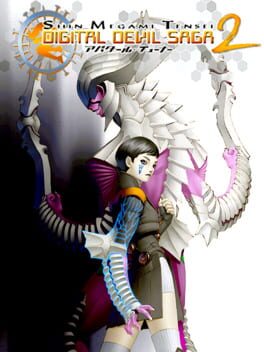
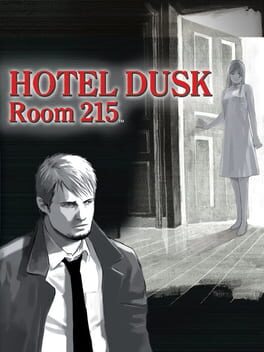
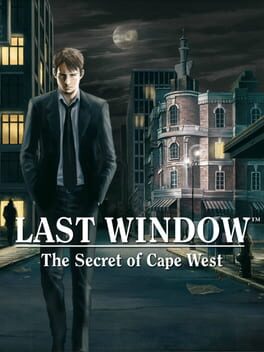
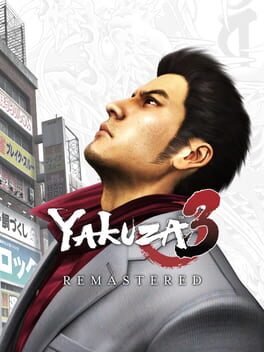
![NieR Re[in]carnation](https://images.igdb.com/igdb/image/upload/t_cover_big/co7bm4.jpg)
